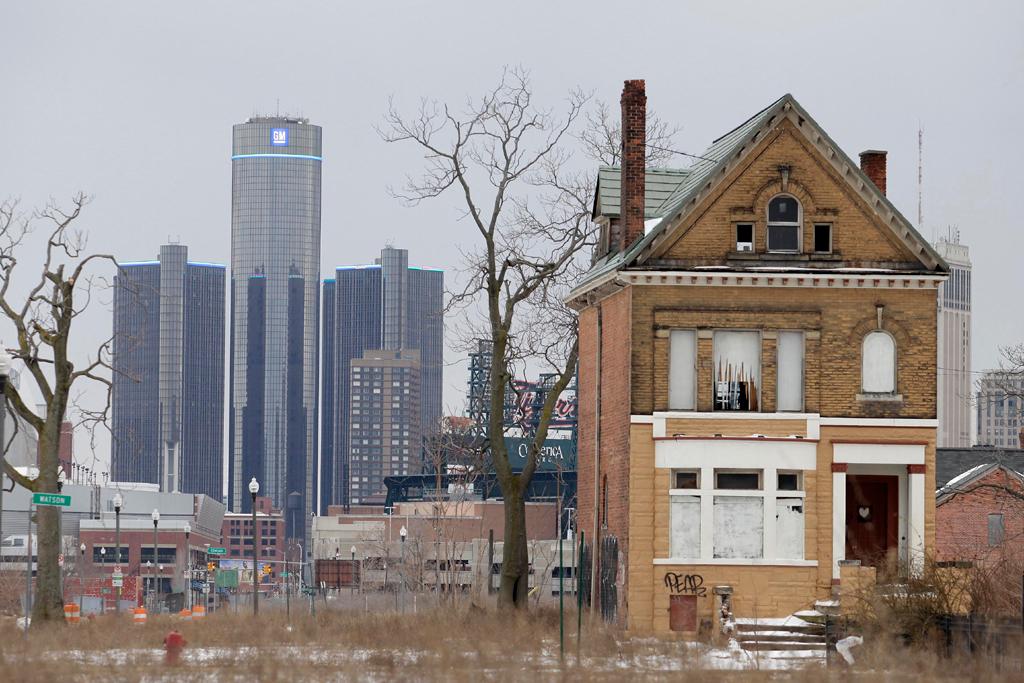Detroit bankruptcy ruling sets stage for tough reforms (VIDEO)
The General Motors world headquarters as seen Feb. 24, 2013, in Detroit. Michigan Gov. Rick Snyder has declared a financial emergency there, which could result in the governor appointing an emergency financial manager to oversee Detroit’s municipal government.
A federal judge on Tuesday formally declared Detroit bankrupt, a landmark ruling that sets the stage for fierce clashes over potentially sweeping cuts to city worker pensions and retirement benefits.
US Judge Steven Rhodes cited the city's dismal finances and $18.5 billion in debt in support of his decision.
"This once proud and prosperous city can't pay its debts. It's insolvent," Rhodes said in formally granting Detroit the largest public bankruptcy in US history. "At the same time, it also has an opportunity for a fresh start."
City unions and pension systems had argued that the Chapter 9 filing should be thrown out because it violated state constitutional contract protections for retiree benefits.
With the decision, Detroit can now focus on writing a plan to cut its debt.
More from GlobalPost: Famed museum could fall victim to Detroit bankruptcy
That will mean a slew of meetings with unhappy creditors and touchy negotiations over the pensions of about 23,000 retirees and 9,000 workers.
The city's pension funds are short by an estimated $3.5 billion.
Things are so desperate that the city may consider auctioning off masterpieces from the Detroit Institute of Arts and selling a water department that serves much of southeastern Michigan.
The city's emergency manager, Kevyn Orr, told the Detroit Free Press he plans to submit a plan of adjustment “in the coming weeks,” file a disclosure statement early next year and work to exit Chapter 9 protection by the end of September 2014.
More from GlobalPost: Detroit bankruptcy impact will be widespread, experts say
The story you just read is accessible and free to all because thousands of listeners and readers contribute to our nonprofit newsroom. We go deep to bring you the human-centered international reporting that you know you can trust. To do this work and to do it well, we rely on the support of our listeners. If you appreciated our coverage this year, if there was a story that made you pause or a song that moved you, would you consider making a gift to sustain our work through 2024 and beyond?
